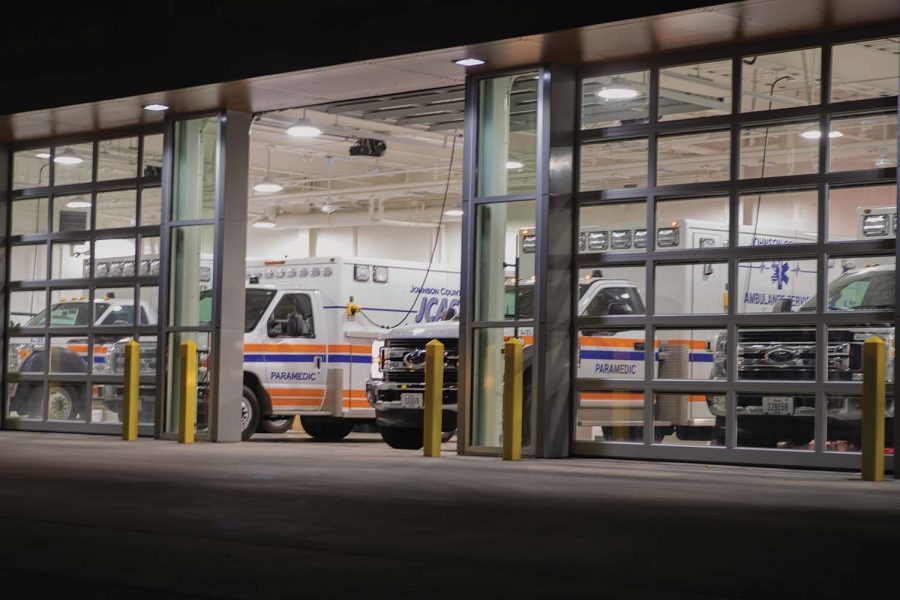University of Iowa professor publishes book on pre-hospital transportation
University of Iowa Professor Salam Rahmatalla has studied how vibrations on the trip to the hospital can worsen injuries or pain for patients.
October 5, 2021
Patients who experience a traumatic injury can sometimes have their pain or the extent of their injuries worsened by the whole-body vibrations they feel when being transported in a vehicle to medical care, according to a new book from University of Iowa Professor Salam Rahmatalla.
Following 15 years of research, Rahmatalla published a book, Prehospital Transport and Whole-Body Vibration, detailing his discovery that some medical patients, particularly those coming from war zones, may experience more pain or discomfort while being transported for medical help than they felt initially. His research focused on side effects patients experience because of prehospital emergency transportation.
Rahmatalla, a professor of structural mechanics and biomechanics in the UI College of Engineering, used the book to summarize his research. The book highlights measurements, lab experimentations, field studies, discomfort levels, and biomechanics of people subjected to whole-body vibration.
Rahmatalla said his work focuses on both war-zone patients and regular patients. When working with the U.S. Army, he said 27 healthy people participated in his research projects.
“Millions of injured patients are transported annually during accidents, war zones, and natural disasters from the point of injury via ground, aerial, or sea, where whole-body vibration exists,” he said. “These types of vibratory motions can cause discomfort, pain, and worsening of injuries.”
Ground ambulances, road-driven vehicles, were used to simulate different war-zone terrains, he said. The army used different types of emergency vehicles such as a Humvee, he said.
“When medics take injured people from the point of injury, they usually are in a severe condition, such as spinal cord or head injuries, as the medical team tries to stabilize them by being put on a stretcher, strapping them in, and using a neck collar or a splinter,” Rahmatalla said.
There is a lot of vibration during this process, he added. Medics told him that patients normally said they feel discomfort and pain during emergency transport, Rahmatalla added.
“Sometimes vibrations cause bleeding or secondary injuries, which means the injuries become worse,” Rahmatalla said.
RELATED: Vibrations from vehicles take a toll on farmers’ backs
There is an ongoing debate about the advantages and disadvantages of using immobilization systems in the theater, he said, such as the backboard, splinters, straps, and neck collars.
“People do not have the background to be aware of how the vibration is affecting the immobilization and how the patient is moving,” Rahmatalla said. “In addition, there is no guidance or standards that are imposed on the industry to develop more effective and safer transport systems.”
Iowa Technology Institute Director Karim Abdel-Malek said Rahmatalla has been conducting research for some time and made breakthrough findings, particularly for emergency-room patients who had significant injuries after transportation.
Rahmatalla said his research found that there is a need to use different immobilization systems to help support men and women, as gender and size can make an impact on their existing injuries during a ride to seek medical help.
“What we do at the ITI is basic and applied research, as what Salam has done leading to those significant results, and then we do technology transfer of these results to the companies that commercially make and market the products and implement them into systems,” Abdel-Malek said.
Abdel-Malek said the Iowa Technology Institute has an “ecosystem” for researchers, providing equipment, labs, funding, and staff for individuals to conduct their research.
He said publications like Rahmatalla’s have a huge impact on science.
“Salam and the UI gain a lot of recognition when a senior professor’s book gets accepted for publication, because it reflects incredibly well on our university,” Abdel-Malek said. “It proves to the world that advanced scientists are indeed here at the University of Iowa.”














